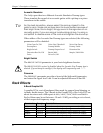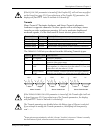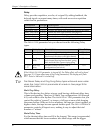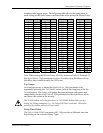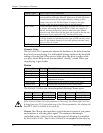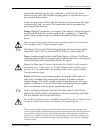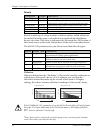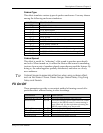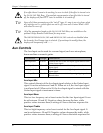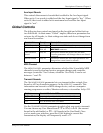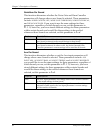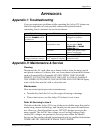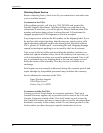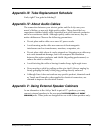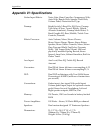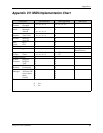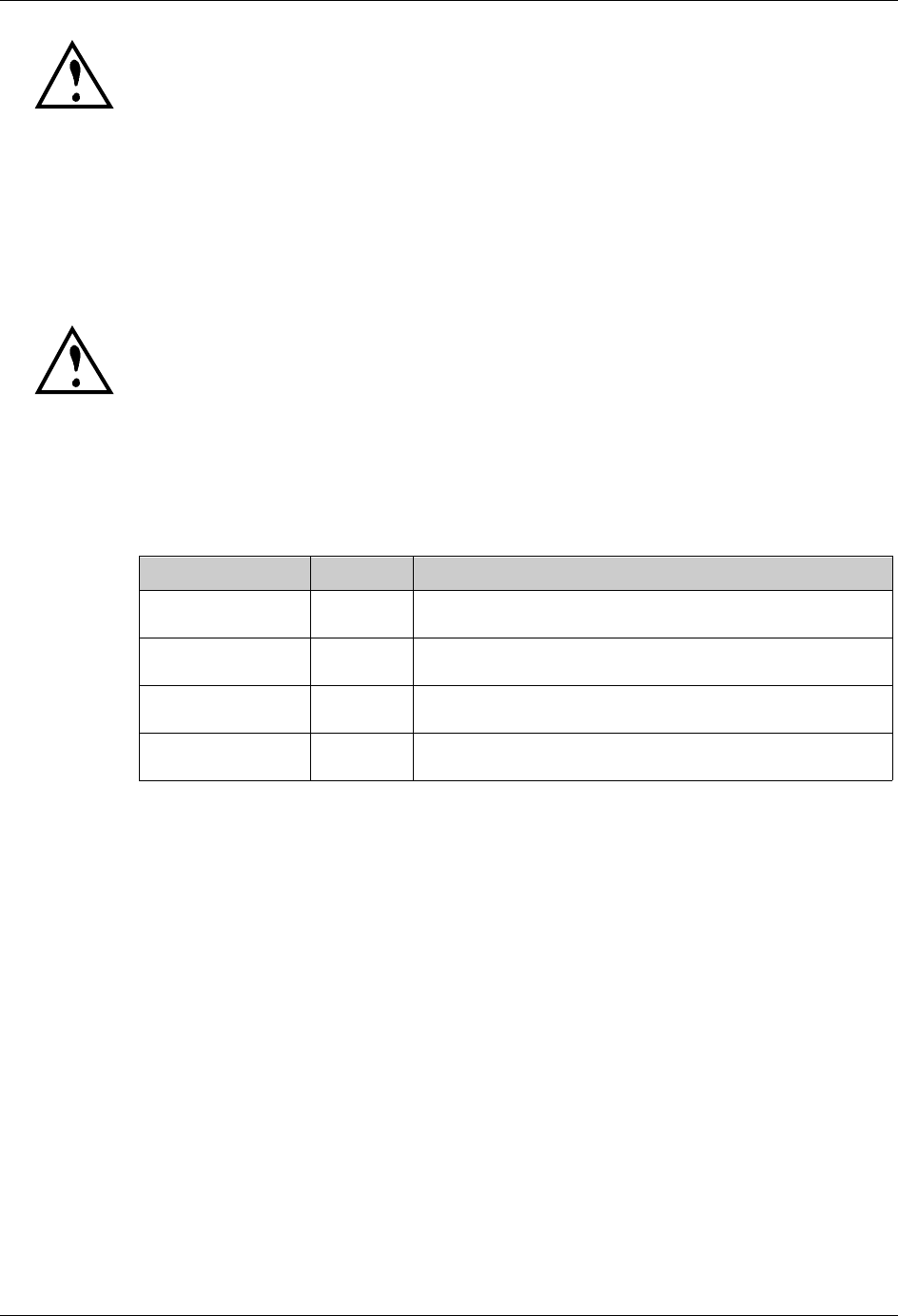
Chapter 3: Description of Features
36 AxSys 212 User Manual
If an effect doesnÕt seem to be working, be sure to check if the effect is turned on in
the
FX ON/OFF Edit Row. If you adjust any parameter of an effect that is turned
off, the display will flash OFF twice to indicate it is turned off.
TIP
Since all of these parameters are the Òon/offÓ type, itÕs easy to see at a glance what
all 6 settings are (i.e. which effects are on or off), since each Control KnobÕs LED
will either be on or off.
TIP
All of the parameters found on the FX ON/OFF Edit Row, are available on the
optional AxSys Remote Pedal Board for easy access.
The DISTORTION BOX ON/OFF and DRIVE ON/OFF controls are disabled when
the Acoustic Sim Preamp type is selected. If you attempt to modify them, the
display will temporarily read
---
.
Aux Controls
The Aux Input can be used for a second signal, such as a microphone,
drum machine or acoustic guitar.
Parameter Range Description
Aux Input Mix 00 to 99 Controls the mix of the Aux Input signal relative to the
Guitar Input signal.
Aux Input Bass -50 to +50 Provides a boost or cut of low frequencies to the Aux
Input signal.
Aux Input Treble -50 to +50 Provides a boost or cut of high frequencies to the Aux
Input signal.
Aux Input Reverb 00 to 99 Controls the amount of Aux Input signal going to the
Reverb effect.
Aux Input Mix
This controls the mix of the Aux Input signal relative to the Guitar Input
signal. It can be set between 0 and 99. When set to 0, the Aux Input signal
is not heard at all. When set to 99, the Aux Input signal is mixed with the
Guitar Input signal at maximum volume.
Aux Input Bass
This is a low frequency cut or boost control for the Aux Input signal. It can
be set between -50 and 50. Negative values decrease the bass, while
positive values increase them; a setting of 0 leaves the bass response flat.
Aux Input Treble
This is a high frequency cut or boost control for the Aux Input signal. It
can be set between -50 and 50. Negative values decrease the treble, while
positive values increase them; a setting of 0 leaves the treble response flat.



